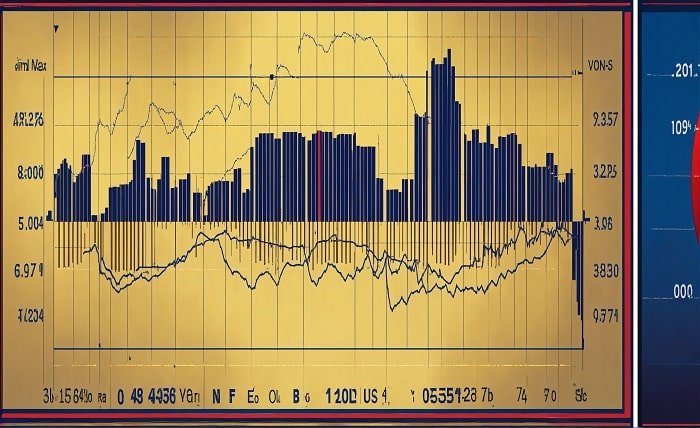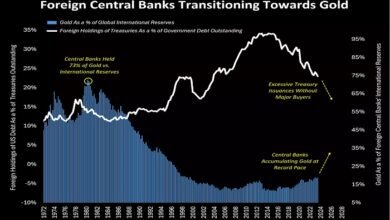
The foreign exchange market, or Forex, plays a pivotal role in the global economy. It’s not just a platform for currency trading; it serves crucial functions that facilitate international business and finance. In this blog, we delve into what are the two main functions of the foreign exchange market: currency conversion for facilitating trade and investment, and providing a mechanism for managing currency risk.
The Essence of the Foreign Exchange Market
At its core, the foreign exchange market is about exchanging one currency for another. This market is the largest financial market in the world, essential for global economic activity. Understanding what are the two main functions of the foreign exchange market reveals its indispensable role in global trade.
Facilitating International Trade
One of the primary functions of the foreign exchange market is to enable the conversion of currencies, which is essential for international trade. Whether it’s an American company importing goods from Europe or a tourist visiting India, currency conversion is crucial.
Encouraging Foreign Investment
Foreign investment requires the investor to convert their domestic currency into the currency of the country where they wish to invest. This function of the foreign exchange market not only supports direct investment but also influences foreign exchange rates significantly.
Determining Exchange Rates
The foreign exchange market plays a critical role in setting and adjusting the exchange rates between different currencies. These rates are influenced by various factors including economic indicators, market speculation, and geopolitical events.
Providing Economic Stability
By allowing for the efficient movement of currencies, the foreign exchange market helps maintain economic stability. Exchange rates impact inflation, exports, and imports, which are integral components of a country’s economic health.
Managing Currency Risk
The second main function of the foreign exchange market is to provide tools for managing currency risk. Through various financial instruments like forwards, futures, options, and swaps, market participants can hedge against unfavorable shifts in exchange rates.
Facilitating Speculation
While not a primary function, speculation is a significant activity within the foreign exchange market. Traders anticipate movements in currency values to make profits. Although speculative, it contributes to market liquidity and price setting.
Impact on Global Businesses
Understanding what are the two main functions of the foreign exchange market is crucial for global businesses. The ability to manage risks associated with currency fluctuations can protect profits and investment value.
The Role of Technology in Forex
Technological advancements have transformed the foreign exchange market, making it more accessible and efficient. Automated trading systems and electronic trading platforms have increased the volume and speed of transactions.
Regulatory Environment
The foreign exchange market is subject to regulations that ensure transparency and protect against market abuse. These regulations are crucial for maintaining the integrity of the market and protecting the interests of all participants.
Conclusion
The foreign exchange market is indispensable in supporting global economic operations. Its two main functions—facilitating currency conversion for international trade and investment, and providing mechanisms for managing currency risk—highlight its complexity and importance. Understanding these functions helps businesses and investors navigate the challenges of the global economy more effectively.
Learn how to earn tuffer rewards efficiently with our step-by-step guide. Maximize your earnings, unlock exclusive perks, and discover tips to make the most of the Tuffer platform today!
FAQs
Q1: Why is the foreign exchange market important for average consumers?
A1: The foreign exchange market is vital for consumers as it impacts the price of imported goods and the cost of foreign travel, directly affecting everyday expenses.
Q2: How do currency conversion and risk management work in Forex?
A2: Currency conversion in Forex involves exchanging one currency for another at the prevailing market rate. Risk management is often conducted through derivatives like forwards and options, which are contracts to buy or sell currencies at a future date at a predetermined price.
Q3: Can individuals participate in the foreign exchange market?
A3: Yes, individuals can participate through brokers or banks. They can trade currencies, speculate on changes in exchange rates, or hedge against currency risks.
Q4: What are the risks associated with the foreign exchange market?
A4: The risks include market risk from fluctuating exchange rates, credit risk from the possibility of counterparty failure, and operational risk from technical failures or fraud.
Q5: How does the foreign exchange market affect global economic stability?
A5: It influences economic stability by affecting exchange rates, which in turn influence global trade balances, inflation rates, and economic growth patterns.
Discover powerful stock screening tools and live charts on chartink. Analyze trends, track investments, and make informed trading decisions.





